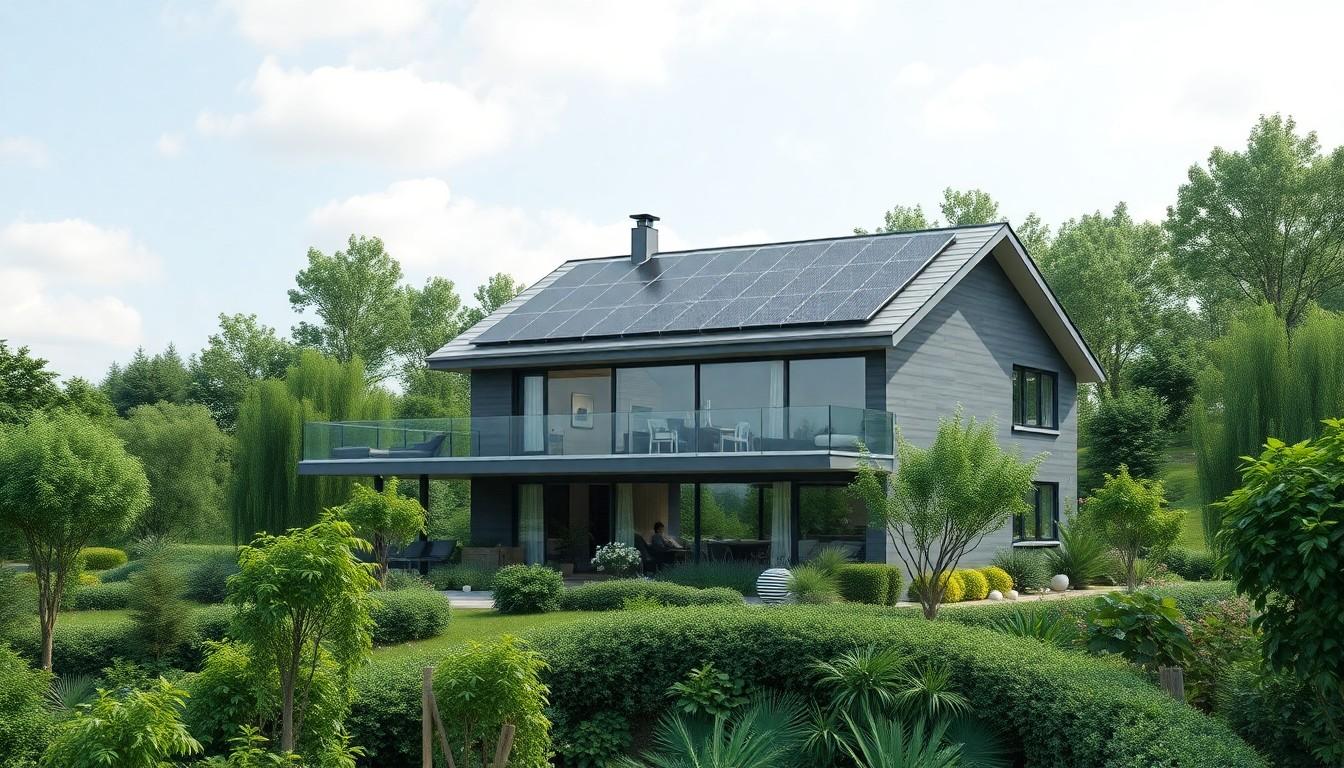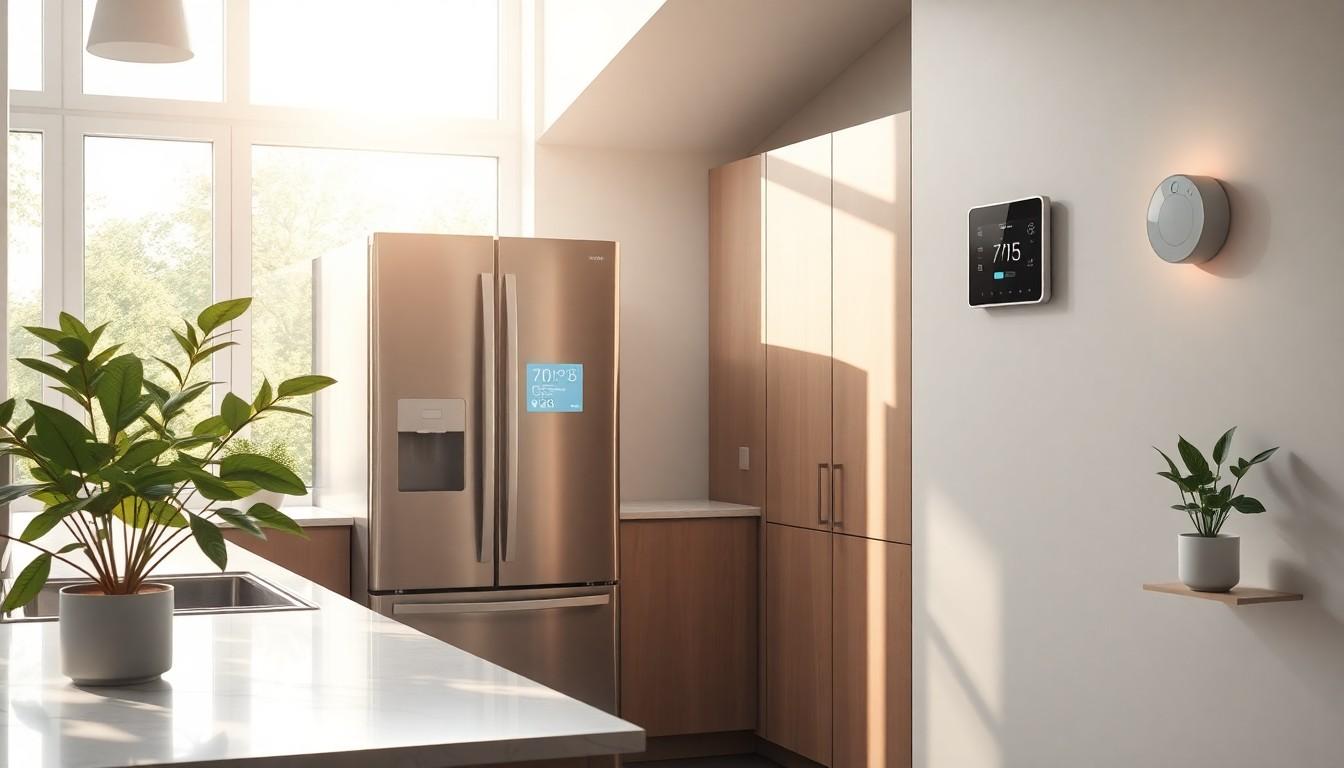Imagine a world where your home not only caters to your every whim but also gives Mother Nature a high-five. Welcome to the age of smart homes, where technology meets sustainability in a way that makes eco-friendly living as easy as flipping a switch—literally. With smart devices managing energy use and reducing waste, living green has never been so chic or convenient.
Gone are the days of feeling guilty about leaving lights on or cranking up the heat. Smart homes offer a delightful blend of comfort and conscience, allowing homeowners to save the planet while still enjoying their creature comforts. So, if you’re ready to turn your humble abode into an eco-friendly fortress, it’s time to explore how smart technology can transform not just your living space, but also the world around you.
Smart Homes: The Key To Eco-Friendly Living
Smart homes incorporate advanced technology to enhance sustainability and promote eco-friendly living. These homes prioritize energy efficiency, convenience, and automation.
Definition of Smart Homes
A smart home utilizes internet-connected devices to manage systems such as lighting, heating, and security. These devices communicate with each other and can be controlled remotely via smartphones or voice-activated assistants. The integration of technology allows for real-time monitoring and automation, creating a responsive living environment. Energy-efficient solutions contribute to reduced carbon footprints, making smart homes an attractive option for environmentally conscious homeowners.
Key Features of Smart Homes
Key features of smart homes include the automation of lighting and climate control. Programmable thermostats optimize energy use based on occupancy patterns. Smart appliances enhance efficiency, using less electricity or water compared to traditional models. Home security systems offer remote monitoring and alerts, allowing users to protect their property easily. Integration with renewable energy sources like solar panels further supports eco-friendly living, maximizing energy savings. These features collectively create a seamless, efficient, and eco-friendly home environment.
Environmental Impact of Traditional Homes

Traditional homes significantly impact the environment through excessive energy use and resource depletion.
Energy Consumption
Energy consumption in conventional homes accounts for nearly 20% of total greenhouse gas emissions in the United States. Heating, cooling, and powering appliances contribute heavily to this statistic. Common practices, like leaving lights on or using outdated heating systems, increase energy waste. Electric water heaters and old refrigerators typically draw substantial amounts of power, leading to higher utility bills and larger carbon footprints. Smart technologies can mitigate these issues by promoting energy-efficient practices through automatic adjustments and remote monitoring.
Resource Depletion
Resource depletion occurs as traditional home construction demands significant raw materials. Wood, steel, and concrete extraction negatively impacts ecosystems and leads to habitat loss. More than 25 billion tons of construction materials are consumed globally each year. Additionally, maintaining a home requires ongoing resources, including water and energy for heating and cooling. Such consumption strains resources further, contributing to urbanization and waste accumulation. Smart homes offer solutions, utilizing sustainable materials and energy efficient systems to lessen this strain and promote environmental conservation.
How Smart Homes Promote Eco-Friendly Living
Smart homes significantly support eco-friendly living through various technological advancements. These systems prioritize a reduced environmental impact and enhance sustainability for homeowners.
Energy Efficiency
Smart homes feature advanced systems that optimize energy use. Programmable thermostats adjust heating and cooling based on occupancy, resulting in reduced energy consumption. Automated lighting systems turn off lights in unoccupied rooms, preventing unnecessary electricity waste. Energy-efficient appliances further decrease power usage, as they operate based on real-time demand. Homeowners can track energy consumption through smart meters and receive reports on usage patterns, allowing for better management. Studies show that integrating smart technology can lower overall energy bills by up to 30%.
Water Conservation
Smart home devices contribute to significant water conservation efforts. Smart irrigation systems adjust watering schedules based on weather conditions and soil moisture levels, preventing overwatering. Leak detection sensors alert homeowners to plumbing issues, minimizing water waste from undetected leaks. Smart appliances, such as dishwashers and washing machines, optimize water use per load. Overall, these technologies can lead to water savings of up to 50% compared to traditional systems. Homeowners adopting smart water management solutions experience both environmental benefits and cost savings.
Waste Reduction
Waste reduction forms a core aspect of eco-friendly living in smart homes. Smart recycling bins identify recyclable materials and monitor waste levels, encouraging proper disposal and recycling practices. Integration of smart home management applications allows users to plan meals efficiently, reducing food waste through better inventory management. Homeowners can also manage deliveries with smart locks to streamline package receipt, cutting down on packaging waste. Implementing smart technologies can decrease a household’s waste by at least 20%, fostering a healthier environment.
Technologies Driving Smart Homes
Smart home technologies enable efficient management of energy and resources. Various advancements in this field support eco-friendly living while enhancing comfort.
Smart Appliances
Smart appliances optimize energy use and improve convenience. For instance, smart refrigerators can monitor food inventory and suggest recipes, reducing food waste. Dishwashers equipped with smart technology adjust water levels based on load sizes, saving significant amounts of water. Additionally, washing machines use sensors to identify fabric types, ensuring appropriate energy consumption. These smart devices contribute to potential savings of up to 30% on utility bills, making them valuable investments for eco-conscious homeowners.
Home Automation Systems
Home automation systems centralize control of various devices, increasing efficiency and convenience. Smart hubs connect lighting, climate control, and security systems, enabling users to manage their homes from a single app. Ways to automate include scheduling lights to turn off when rooms are unoccupied and adjusting thermostats based on occupancy patterns, which can result in energy savings of up to 20%. Security systems can also integrate smart cameras and alarms, enhancing safety while monitoring energy use. These systems promote a seamless, eco-friendly living experience.
Challenges and Considerations
Smart homes present various challenges that homeowners must consider, especially related to costs and technology adoption.
Initial Costs
Initial costs for smart home technologies can be significant, often deterring potential buyers. Homeowners face expenses for devices, installation, and compatible infrastructure upgrades. A comprehensive smart home setup can reach thousands of dollars, particularly when incorporating multiple systems and features. While energy-efficient devices reduce utility bills, the upfront investment might not be within everyone’s budget. Incentives or tax credits sometimes exist to offset these costs, making it easier for homeowners to transition to eco-friendly solutions without immediate financial strain.
Technology Adoption
Technology adoption poses another challenge for smart home enthusiasts. Understanding and effectively using new technologies often requires a learning curve. Users need familiarity with apps and systems controlling various devices. Compatibility between different manufacturers may create confusion, impacting overall functionality. Furthermore, concerns about privacy and data security continue to be significant hurdles. As smart devices collect personal information, some homeowners express skepticism regarding data protection. Education and support from manufacturers can help ease these concerns and encourage broader acceptance of smart home technologies.
Smart homes represent a significant step toward sustainable living. By integrating advanced technology with eco-friendly practices, they empower homeowners to reduce energy consumption and minimize waste. The benefits extend beyond individual households, contributing positively to the environment and helping combat climate change.
As technology continues to evolve, the potential for smart homes to enhance eco-conscious living will only grow. Homeowners who embrace these innovations not only enjoy a more comfortable lifestyle but also play a vital role in preserving the planet for future generations. Transitioning to a smart home is not just a trend; it’s a commitment to a greener, more sustainable future.

